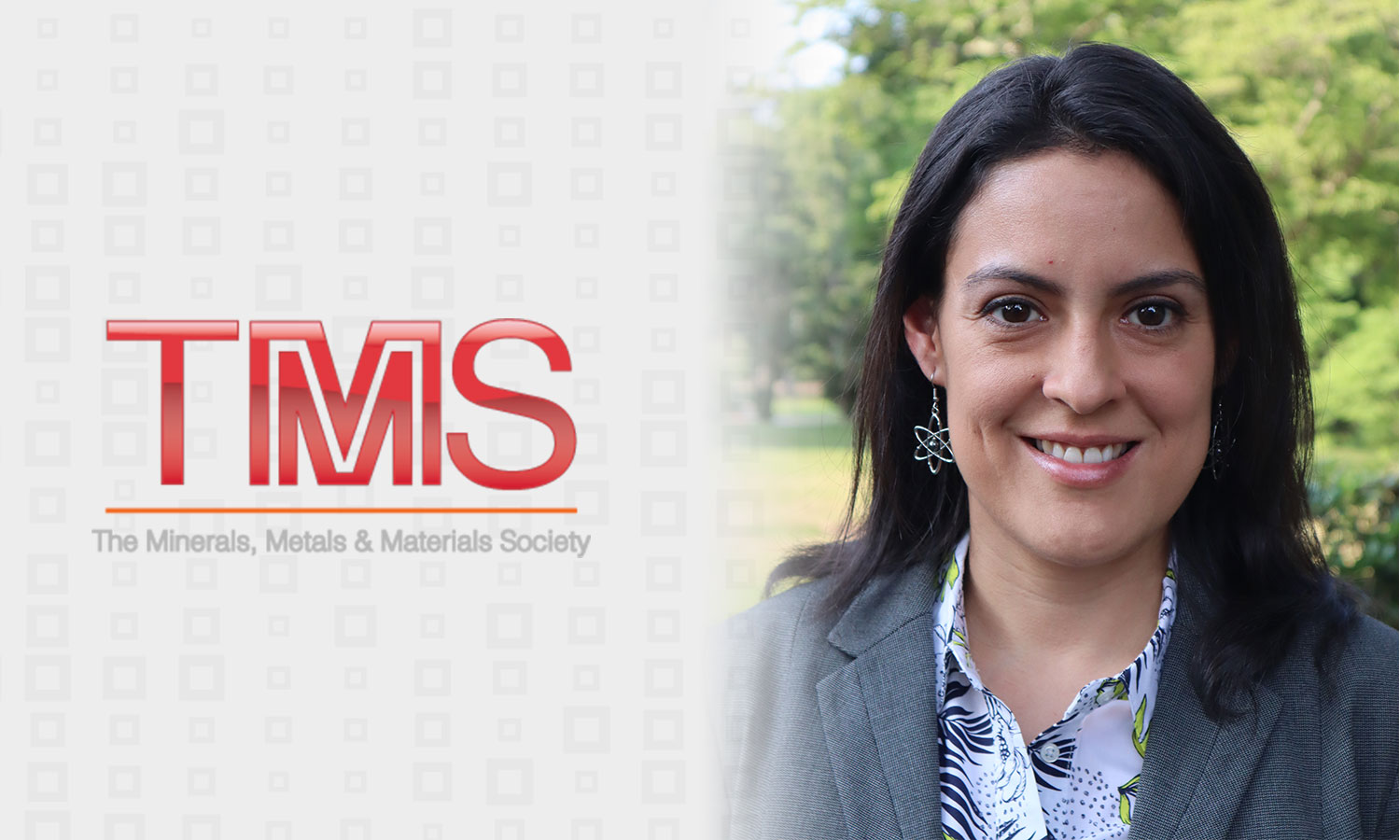Jessika Rojas, Ph.D., associate professor in VCU’s Department of Mechanical and Nuclear Engineering, received the 2021 Frontiers of Materials Award from The Minerals, Metals and Materials Society (TMS). She is a mechanical and nuclear engineering expert specializing in nuclear materials, nanomaterials and radiation-induced processes that make materials more functional and versatile.
Rojas received the award at the TMS Annual Meeting and Exhibition, held virtually in March 2021.
This competitive award is given to top-performing, early-career professionals. As part of the award, the honoree organizes a symposium on an emerging technical topic and delivers a keynote lecture.
Rojas’ symposium presented research suggesting that ionizing radiation and radiation processing may be powerful tools to make materials more robust, or to modify them for different applications.
One example, Rojas said, is titanium dioxide, commonly found in sunscreen. When irradiated, titanium oxide creates a superior purification agent to decompose the pollutant methylene blue (used to dye blue jeans) from water supplies.
Rojas' TMS symposium talk highlighted the use of ionizing radiation as a synthesis and processing tool for inorganic nanomaterials in applications for medicine and catalysis. It explored the synthesis of metal nanoparticles supported on various materials such as ceramic nanoparticles and 3D supports. It also discussed X-ray irradiation as a novel surface treatment to improve the photocatalysis performance of TiO2 in light of materials’ surface chemistry.
“I am very honored to receive this award, and to have this opportunity to showcase this research, which I truly believe in,” she said. “It was great to show what we can do with radiation, and help clear up some common misconceptions in the field. If you know how to handle radiation and apply it correctly, you can use it to modify material properties for groundbreaking applications including environmental, health care and smart-materials uses.”
